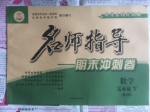题目内容
阅读下面一篇文章,然后完成表格。
In the early part of the twentieth century,racism was widespread in the United States.Many African Americans were not given equal opportunities in education or employment.Marian Anderson(18971993)was an African American woman who gained fame as a con-cert singer in this climate of racism.She was born in Philadelphia and sang in church choirs during her childhood.When she applied for admission to a local music school In 1917,she was turned down because she was black.Unable to attend music school,she began her career as a singer for church gatherings.In 1929,she went to Europe to study voice and spent several years performing there.Her voice was widely praised throughout Europe.
Then she returned the U.S.in 1935 and became a top concert singer after performing at Town Hall in New York City.
Racism again affected Anderson in 1939.When it was arranged for her to sing at Constitution Hall in Washington,D.C,the daughters of the American Revolution opposed it because of her color.She sang instead at the Lincoln Memorial over75,000 people.In 1955,Anderson became the first black soloist to sing with the Metropolitan Opera of New York City.The famous conductor Toscanini praised her voice as “head only once in a hundred years”.She was a U.S.delegate to the United Nations in 1958 and won the UN peace prize in 1977.Anderson eventually triumphed over racism.
The life of Anderson
|
time |
events |
|
before 1917 |
was born in Philadelphia and sang in church choirs during her childhood |
|
in 1917 |
1 |
|
in 1929 |
went to Europe to study voice |
|
in 1935 |
2 |
|
In 1955 |
3 |
|
in 1958 |
4 |
|
in 1977 |
5 |
解析:
|
1.was turned down by a local music school 2.retruned to the U.S and became a lop concert singer 3.became the first black soloist to sing with the Metropolitan Opera of New York City 4.was a U.S.delegate to the United Nations 5.won the UN peace prize |

 名师指导期末冲刺卷系列答案
名师指导期末冲刺卷系列答案 开心蛙口算题卡系列答案
开心蛙口算题卡系列答案